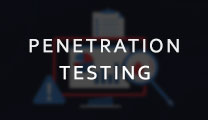What will you Learn in Penetration Testing Course in Delhi?
Penetration Testing Training Course in Delhi is purely real hardcore practical based Penetration Testing Course in Delhi. Penetration Testing Training is based on the process of Penetration Testing of the network, web application, mobile application, etc. Penetration Testing Course will go deeply till exploitation. Students will Learn Penetration Testing Methodology and the security audit process. bytecode Security gave the best-certified Penetration Testing course in Delhi that offers the best Penetration Testing course in Delhi on useful tests that help wannabes acquire proficient abilities. The foundation offers a pragmatic and vocation-based Penetration Testing course in Delhi to help understudies secure their fantasy position at
Different MNCs. Understudies are offered the chance to acquire commonsense experience of taking an interest in genuine Penetration Testing projects and 100% position help. The Bytecode Penetration Testing Course in Delhi is run by exceptionally experienced industry experts. It is perceived among the main Penetration Testing Courses in Delhi, as it works on a blend of reasonable learning and learning hypothesis. This kind of exhaustive conduct preparing with great openness works with the total change of the understudy into an expert.
Bytecode Security is one of Delhi’s ideal and most notable entrance Testing preparing focus with cutting edge framework. The establishment offers the best infiltration testing preparation that is tweaked by the substance necessity of every single student. Bytecode Security is trustworthy and a standout amongst other Penetration Testing Training organizations in Delhi alongside 100% position support. Post fruition of the preparation the understudies are granted Bytecode Penetration Testing accreditation that is generally perceived in the business as approval of one’s abilities and mastery.
- Introduction to Penetration Testing And Methodologies
- Penetration Testing Scoping
- Engagement Methodology
- IoT Penetration Testing Methodology
- Exploit these vulnerabilities to hack into web servers.
- Become a bug bounty hunter & discover bug bounty bugs!
- Bypass security & advanced exploitation of these vulnerabilities.
Self-paced Online Learning
Learn Online Penetration Testing Course
- 35 days of flexible access to online classes
- Learn at your pace from your place
- Weekly Content updation
- Lifetime access to high-quality live class recordings
- 24×7 learner assistance and support
- Email and Call Support
- Certificate of Completion
Instructor-Led Training
Penetration Testing Training Course
- Blended learning delivery model (instructor-led options)
- Teaching style modified according to the student’s issues
- Develops important personality and career-building skills
- Group Discussions
- 24×7 learner assistance and support
- Weekdays / Weekend Classes
Content For Penetration Testing Course in Delhi
Module 01: Penetration Testing: What You Should Know
Module 02: Comprehensive Pentest Planning, Scoping, and Recon
Module 03: In-Depth Scanning
Module 04: Exploitation
Module 05: Domain Domination
Module 06: Getting Comfortable with Kali Linux
Module 07: Command Line Fun
Module 08: Practical Tools
Module 09: Bash Scripting
Module 10: Passive Information Gathering
Module 11: Active Information Gathering
Module 12: Vulnerability Scanning
Module 13: Web Application Attacks
Module 14: Introduction to Buffer Overflows
Module 15: Windows Buffer Overflows
Module 16: Linux Buffer Overflows
Module 17: Client-Side Attacks
Module 18: Locating Public Exploits
Module 19: Fixing Exploits
Module 20: File Transfers
Module 21: Antivirus Evasion
Module 22: Privilege Escalation
Module 23: Password Attacks
Module 24: Port Redirection and Tunneling
Module 25: Active Directory Attacks
Module 26: The Metasploit Framework
Module 27: PowerShell Empire
Module 28: Assembling the Pieces: Penetration Test Breakdown
Module 29: Trying Harder: The Labs
Frequently Asked Questions
About Eccouncil Penetration Testing Training – Penetration Testing Course in Delhi
Where can I learn penetration testing?
Bytecode Security is the best penetration testing service provider in Delhi the course covers by Bytecode security mentioned below
Top Penetration Testing courses in Network & Security
Hands-on Penetration Testing Labs 2.0. …
The Complete Web Penetration Testing & Bug Bounty Course. …
Hacking REST APIs – A beginner’s guide. …
Hands-on Penetration Testing Labs 4.0. …
Bug Bounty – Web Application Penetration Testing B|WAPT
How much should a penetration test cost?
penetration testing course starts from 15000 Rupes in Delhi India. And Bytecode security institute is the best institute in Delhi
Do penetration testers have codes?
Most penetration testing positions will require some amount of programming ability, both in scripting languages such as Perl and in standard programming languages such as Java. Aspiring penetration testers
How much does a penetration tester earn in India?
The average salary for a Penetration Tester is ₹5.00.000 P/Y in India.
Why is penetration testing so expensive?
A more complex environment requires more labor to virtually walk through the network and expose web applications looking for every possible vulnerability. Methodology: each pen tester has a different way they conduct their penetration test. Some use more expensive tools than others, which could increase the price.
What language do pen testers use?
Python or Ruby are commonly used in pentesting for creating your tools.
What is the best programming language for penetration testing?
The Best Programming Languages for Hacking
Python.
C Programming.
SQL. SQL – Standard Query Language
JavaScript. …
PHP. …
C++ Programming. …
JAVA. …
RUBY.
What is the penetration testing process?
A penetration test, also known as a pen test, is a simulated cyberattack against your computer system to check for exploitable vulnerabilities. In the context of web application security, penetration testing is commonly used to augment a web application firewall (WAF).
What is CompTIA Pentest?
CompTIA PenTest+ is a certification for cybersecurity professionals tasked with penetration testing and vulnerability assessment and management. … Cybersecurity professionals with CompTIA PenTest+ know-how plan, scope, and manage weaknesses, not just exploit them.
What are the 5 stages of penetration testing?
Five Phases of Penetration Testing
Phase 1 – Reconnaissance. Reconnaissance is the act of gathering information on or about your target to better plan out your attack. …
Phase 2 – Scanning. …
Phase 3 – Exploitation/Gaining Access. …
Phase 4 – Maintaining Access. …
Phase 5 – Covering Tracks.
What is the final stage of a penetration test?
This is the final stage of penetration testing and is important. If you don’t do this you are considered an attacker. You need to document the process that you took to find the exploits and vulnerabilities and present them to the company in a professional manner.
Why is pen testing important?
Preparation For An Attack
The main reason penetration tests are crucial to an organization’s security is that they help personnel learn how to handle any type of break-in from a malicious entity. Pen tests serve as a way to examine whether an organization’s security policies are genuinely effective.
how to connect with the best pentesting service provider?
Bytecode CYBER SECURITY PVT. LTD.
1st Floor, Plot no. 4, Lane no. 2, Kehar Singh Estate Westend Marg, Behind Saket Metro Station
Saidulajab New Delhi – 110030
+91 742 811 6667 | 964 364 8668 | 742 810 6667
Email ID: training@craw.in | info@craw.in
Why is pen testing ethical?
Penetration testing is aimed at finding vulnerabilities, malicious content, flaws, and risks. This is done to strengthen the organization’s security system to defend the IT infrastructure.

























